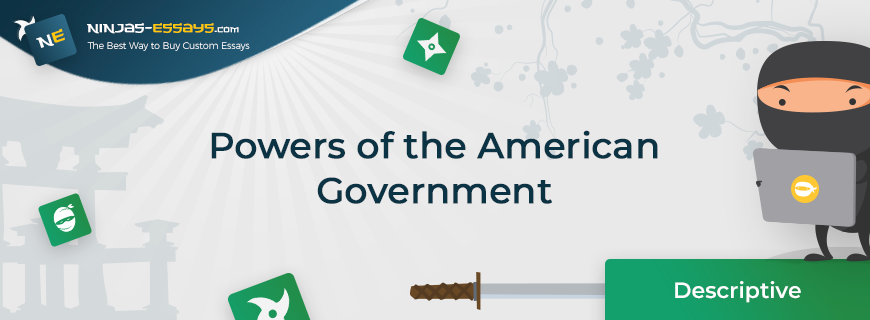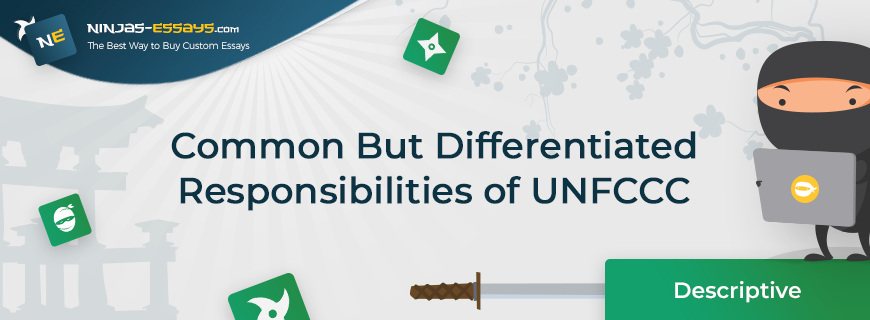
The constitution of the USA proclaims the powers of the various branches of the government. Here, the Judiciary, the President, and the Congress possess separate responsibilities whereby in this system of a separation of powers each part functions autonomously of the other. However, these independent branches coexist in checks and balances to enhance their relationship, avoid the concentration of power in one branch, and also to protect the rights and freedom of the people. This has, in turn, enhanced the success of the government over the years. To elaborate more on this, the constitutional powers of the Congress are solid and vast, although the Presidents have used their authority and political resources to choose the Executive Offices, thus challenging the Congress dominance in the national politics since 20th century; as a result, in the future balance of power may transfer to the presidential side.

Best Essay Writing
Services

Need Custon Writen Paper? We'll Write an essay from scratch according to your instructions
Constitutional Powers of the Congress
Making Laws
The legislative process is intended to make sure that proposed laws are examined carefully. Any congressman or senator can present the bills, after which authorities deliver it to the hearing to the suitable legislative committee. The committee then debates the measure, perhaps presents amendments, and votes on it. If they approve the, it transfers back to the Congress and congressmen vote for its full body (“How to Propose a Bill according to Jean Arthur”). Supposing the first house supports the measure, it then proceeds to the other chamber for voting; it the other house agrees, lawmakers prepare the bill for the president. In case the House of Representatives and the Senate approve the laws that vary, the joint Congressional
Committee resolves it before both chambers vote for it. The legislation or law project then transfers to the White House, where the presidents sign it or reject it (“Congress (2) Legislation”).
Overriding the President Vetoes
The President may decline to sign the bill into law. This prompts the Congress to override this veto by passing the act through the majority or two-thirds of the vote in the House and the Senate (“Congress (2) Legislation”). This check stops the President from an obstructive act that has majority’s support. The power of the President is important because in the history of the US Congress seldom has overridden the vetoes.
Approving the Treaties and Appointments
The Constitution provides the Senate with the powers to approve the treaties. This power is meant to benefit the President with the advice and counsel, check the power of the President, and protect the sovereignty of the states by ensuring each state has participated in the process of the treaty establishment (Ginsberg, et. al. 2016: 326). Still, on that, the Senate possesses the power to approve the appointments made by the President to positions, such as ambassadors, federal judges, and cabinet secretaries among others (“Founding Principles: American Governance in Theory and Action. Chapter 3”). The approval of treaty and appointments requires support from the two-thirds of the Senate or majority in the House.
Oversight
The US congress does the oversight over the Executive Branch and various federal agencies (“Congress (2) Legislation”). This oversight involves monitoring, reviewing, as well as supervising the federal agencies, activities, programs, and implementing the policies. It exercises its power mainly through its committee system. The Committee of the Congress does its hearings and investigations in order to find the inadequacies or misuse of power, discover whether the agency performs their duties in accordance with the law, and also analyze the effectiveness of the program.
Impeachment
The Constitution has granted the Congress with the powers to impeach the President, Vice President, top executive branch officials, and judicial officials (Ginsberg, et. al. 2016: 303). Normally, the House of Representatives impeaches an official while the Congress conducts the trial. The removal of the official occurs automatically when he/she becomes convicted by the Senate. Some of the impeachment proceedings made against the Presidents of the United States were the ones of Bill Clinton and Andrew Johnson. The lower House has successfully impeached them but, eventually, the Senate proceeded with acquitting.
How Presidents Challenged the Congress Dominance in the National Politics
In the 20th century the presidents used various powers to challenge the Congress. Foremost, there are White House staffs that have always assisted the presidents in performing their duties. Although the White House office is the part of the Executive Office of the President (EOP); therefore, the staffs are the closest analysts and advisers to the President. They always help the head of the state make decisions whenever it is necessary. The Office also evaluates the advice of other staffs outside it and provides the president with the ideal course of action. Therefore, offices are basically the means through which the President tries to impose his beliefs and views on Executive departments. There is around 400 staff in the White House office whereby their roles defines the President rather than the Congress (Ginsberg, et. al. 2016: 326). Thus, by hiring his personnel in the White House, the head of state can overcome the Congressional dominance in the national politics, since it enables the president to factually create a new strong political body. The EOP divides into the different agencies such as the Office of Management and Budget (OMB), Council of Economic Advisers (CEA), and others with each agency expected to perform its duty (Ginsberg, et. al. 2016: 326). Therefore, president exploits the specialized staff in EOP to balance the power distribution with the Congress.
Moreover, the Presidents have depended on their parties in order to implement their legislative agenda. However, they do not control their political consignments because their members are independent (Ginsberg, et. al. 2016: 329). Nevertheless, in cases when the presidents have been having the majority members of the Congress belonging to their governmental forces, they have been able to persuade their colleagues to support presidential decision in passing the laws.
Future Balance of Power Between the Presidents and the Congress
In my opinion, the future powers of the president may be either similar or different from today. Today, the Congress and the President are having the same powers in that, neither of them is dominant (“Congress (1) Representation”). This shows that power balance may continue developing this way. However, on the other hand, the president might become more powerful than the Congress since lately the powers of the president seem to be expanding, while those of the Congress are shortening. The Congress is slowly losing the power to operate the national defense and federal budget. For example, the country has been involved in many wars in the last 70 years, but the last time that the Senate has approved the war was in 1942.
Apart from that, the presidents have occasionally ignored the Congress when signing various bills. According to the law, the head of the state is supposed to notify the Congress before signing the law project, but some have negated this requirement. For example, in 2014, President Obama did not notify the Congress when he was exchanging the Guant?namo prisoners for an Americans held in Afghanistan (Ginsberg, et. al. 2016: 332). Therefore, based on this, the presidency is slowly overcoming the Congress and becoming more powerful.
Conclusion
In conclusion, the Constitution provides the branches of the government with the broad range of legislative powers while the President can use the ability to employ his own personnel to the Executive Offices, thus balancing the power distribution. In the 20th century, the presidents used the White House Staffs as analysts and advisers in ideal decisions and the EOP to control and influence the executive power. Apart from that, heads of the state may rely on the members of their political parties in the Congress to implement their legislative agenda. In the future, America will potentially have the powerful presidency and the weak government; the recent actions of various presidents show that their powers are overcoming the abilities of the Congress.


